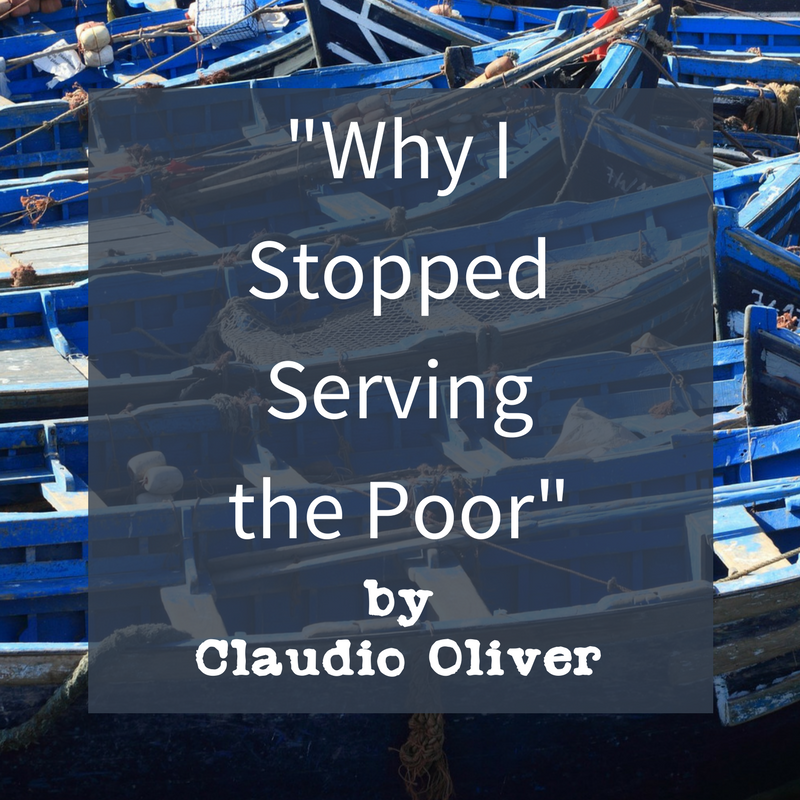|
GUEST POST by a friend of Gena's who prefers to remain anonymous
Ever since I became a mother, I have been questioned by strangers regarding my relationship with my kids. People have asked me things like, “Don’t you want to have your own kids?” and “Do you know much about his real parents?” I get these questions more often than other mothers because my children are Black and my husband and I are white; therefore, our interracial family doesn't look like it “matches.” My husband and I adopted our two children as infants through a domestic adoption agency. Ever since my husband and I started talking about adoption, I have tried to educate myself as much as possible on transracial adoption, especially because I knew that my Black children would grow up with vastly different experiences than I had. I have learned the most from listening to adult adoptees, especially those that were adopted transracially. One of the main messages I hear over and over is how much language matters, especially when heard by children. The following phrases and questions are some of the things we have been asked or heard from others. I would like to share some thoughts on how they can convey certain assumptions and suggest some more appropriate language to use in some situations. “Don’t you want to have your own kids?” When it comes to generalized discussions about why we chose adoption, we most commonly hear this question. In fact, many people use the phrase “your own kids” (referring to biological children) in one way or another. Even if well intentioned, the language can be hurtful. First, my two kids are fully my own and they have been since the day we adopted them. Second, this question implies that we are missing something in our family, and in order to be happy or complete as a family, having biological children is necessary. Most importantly, it sends a message to my kids that they are not enough or that they are a less-than replacement for biological children, which could not be further from the truth. I do not need to have biological children to feel complete. There isn’t really a good alternative to this question, so it is better left unasked. “Why did her mom give her up?” There are various versions of this question, including phrases like “give up/put up/give away a child for adoption.” These phrases actually originated from the orphan trains that operated in the United States, beginning in the 1850s. They transported homeless, orphaned, and runaway children from East Coast cities across the country to the Midwest to be adopted by families. After the train stopped in a town, orphan train children were often placed up on a stage in front of a crowd, which is the origin of terms like "put up for adoption." With the exception of a few rare cases, current domestic infant adoption looks very different. In most situations, the expectant mother/parents make a conscious decision to make an adoption plan for their child, and it is certainly not a casual “give up.” Personally, before we adopted our children, we decided we would keep their stories private, so they could each decide if, when, and with whom to share details about their adoption. Therefore, I never discuss the details of my children’s stories with others. That said, while I don’t feel there is ever a need for someone to ask this question, the correct phrasing when referring to an adoption decision would be “place for adoption” or “make an adoption plan.” “Thank you for adopting!” How many mothers of a biological child have ever been thanked by a stranger for birthing their child? I cringe when I am told this because it feels like it's implying that adoptive parents are “heroes for doing something wonderful for these children” (and sometimes it’s been accompanied by an explicit statement along such lines), and that mindset is definitely not the driving force behind why we adopted. I know that many Christians' hearts for adoption are animated heavily by James 1:27 (“look after orphans and widows”), but my husband and I did not pursue adoption primarily as an outpouring of that perspective. Rather, we felt that God had wired us—individually and as a team—in a way where adoption made the most sense for us, and we were truly thrilled to become part of our kids' (and their birth families') lives. I don't ever want my kids to feel like they needed saving or that we did something “noble” by adopting them—God had them in His hand and would have provided for them with or without us. We don't need to be thanked because we are by far the lucky ones to get to be their parents. If our kids' birth parents had decided to parent them instead of placing them for adoption, our kids would not have had a bad life, just a different life than the one they have now with us. “Thank you for being an advocate for orphans!” I understand the heart behind this statement. As Christians, we should absolutely support and advocate for all orphans to find permanent, loving families. The problem here is the assumption that adoption always involves orphans. The phrasing may be accurate with regard to most international adoptions, in which many of the children being placed with families are, in fact, orphans. But that is rarely the case with either foster-care-based adoption or, as in our case, domestic infant adoption. Most children placed through domestic infant adoption have loving birth families who thoughtfully and voluntarily chose adoption as the option that they believed to be best for their child (hopefully with education and counseling from a non-biased adoption agency case worker). The baby almost always still has a biological mother and father, and very often biological siblings and extended family members. I am grateful that my husband and I have very open relationships with both of our kids' birth families and we get to love, honor, respect, and celebrate that part of their lives every day. “I also want to adopt a child because we as Christians are adopted by God.” We often hear some version of this statement from others who are interested in adoption. Many people in the Christian church compare the adoption of a child with being "adopted" into the family of God through salvation in Jesus. They use phrases like "we adopted our child because God adopted us" and base their perspective off of verses like Ephesians 1:4-5 (“He predestined us for adoption to sonship”). The Biblical word “adoption”—as it relates to salvation—describes a person in the posture of being dead in transgressions, without hope, an enemy of God. Being adopted as a child of God reflects the new position of the person, no longer bound to the authority of sin but instead being transformed and having new life in Jesus as a child of God and the promise of heaven. The comparison of modern-day adoption to the Biblical form of adoption has been identified by adoptees as being inaccurate and problematic, as it places the adoptive parents in the "savior" role and implies the child was in a place where he/she needed “saving” from their birth family. This comparison is at best woefully imperfect and it can be hurtful toward the child’s birth family. While I will never doubt that God is in the details of every part of our lives, alternate language should be considered when describing the reasons for adopting. In summary I understand that people are curious when they make comments and ask questions like these, and they likely have good intent. But these statements convey underlying beliefs and perspectives, and they can have an impact on families, especially when made in front of a child who may subconsciously internalize them as part of his or her identity. The messages our kids hear from others influence how they view themselves. Adoption is always complex—and sometimes sensitive—and there are many different paths when it comes to adoption. This is why it’s all the more important that appropriate words be used. I believe that being cognizant of our language and the messages it communicates to others can make a big difference in how we understand ourselves and our relationships with those around us. For reflection:
0 Comments
|
Gena's
|

 RSS Feed
RSS Feed

